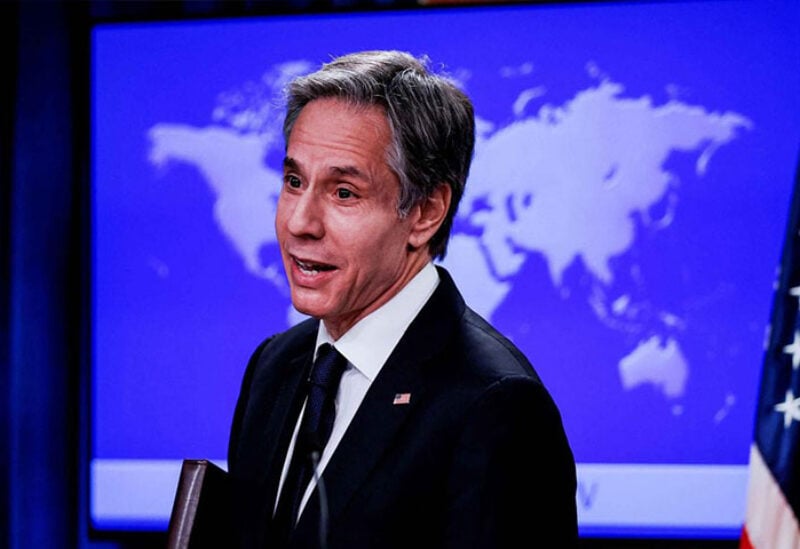
U.S. Secretary of State Antony Blinken
The Biden administration’s competition for influence with China did not start well in Africa.
The top US diplomat planned a visit in August, but it was postponed due to the turmoil in Afghanistan, which preoccupied Washington. Now, three months later, and as two major African crises worsen, Secretary of State Antony Blinken will try once more this week to send a message to the continent that “America is back.”
Despite its importance in the US-China rivalry, Africa is frequently overlooked in favor of more pressing issues in Europe, Asia, the Middle East, and even Latin America.
As a result, Blinken’s visit is intended to raise Washington’s profile as a player in regional and international initiatives to restore peace and promote democracy as it competes with China.
Despite massive US contributions of money and vaccines to combat the coronavirus pandemic and other infectious diseases, this has been difficult to sell.
Meanwhile, China is pouring billions of dollars into African energy, infrastructure, and other projects that Washington regards as rip-offs designed to exploit developing countries.
More immediately, Blinken hopes to bolster the United States’ so far unsuccessful diplomatic efforts to resolve deepening conflicts in Ethiopia and Sudan, as well as combat growing insurgencies elsewhere. His three-nation tour, which will take him to Kenya, Nigeria, and Senegal, comes after months of administration efforts to alleviate both situations, which have yet to bear fruit despite frequent lower-level interventions.
“Our intensive diplomacy there is ongoing, and we would like to demonstrate through the trip that our commitment to African partnerships and African solutions to African challenges is enduring and will continue as we continue our intensive efforts with our African partners and likemindeds to address the difficult issues.”
Blinken begins his tour in Kenya, a key player in both neighboring Ethiopia and Sudan and a member of the United Nations Security Council. Kenya also has vested interests in Somalia, which borders it and has been plagued by violence and instability for decades.
Despite months of engagement by the administration, including an August visit to Ethiopia by US Agency for International Development administrator Samantha Power, several trips to Addis Ababa and Nairobi by Biden’s special envoy for the Horn of Africa, Jeff Feltman, and a current visit to Sudan by the top African diplomat, little progress has been made.
Instead, conflict in Ethiopia has erupted between Prime Minister Abiy Ahmed’s government and the leaders of the northern Tigray region, who once dominated the government, with rebels now advancing on the capital amid increasingly dire warnings from the US and others to flee.
Those tensions, which some fear could lead to mass inter-ethnic killings in Africa’s second-most populous country, erupted into war last year, killing thousands, imprisoning many thousands more, and displacing millions. According to State Department spokesman Ned Price, Blinken will express his concerns to Kenyan President Uhuru Kenyatta on Wednesday.
While hoping for a resolution, the Biden administration has moved toward sanctions, announcing the expulsion of Ethiopia from a US-Africa trade pact and punishing, at least initially, the leaders and military of neighboring Eritrea for intervening in the conflict on Ethiopia’s behalf. Sanctions against Ethiopian officials, including Nobel Peace Prize winner Abiy, are a possibility.
Ethiopia has condemned the sanctions and increased its criticism of “interference” in its internal affairs. And there is skepticism and hostility to US pressure for an immediate cease-fire in Addis Abeba, the African Union’s headquarters, and elsewhere.
While Feltman has traveled between Nairobi and Addis Abeba to ease tensions in Ethiopia, he and the administration have been perplexed by developments in Sudan, where a military coup last month deposed a civilian-led government that was making significant strides toward restoring long-strained ties with the US.
Last week, coup leader Gen. Abdel-Fattah Burhan consolidated power by re-appointing himself as chairmen of a new sovereign council. Despite saying it would appoint a civilian government in the coming days, the US and other Western governments criticized the move.
Burhan took action against civilian Prime Minister Abdalla Hamdok just hours after Feltman left Khartoum on a mission to defuse escalating tensions between them. The United States has responded to the coup by suspending $700 million in direct financial assistance to Sudan. Without changes, additional moves, such as a slowing or reversal of a multiyear rapprochement with the government, could be in the works.
Molly Phee, the top US diplomat for Africa, is currently in Khartoum and will meet with Blinken in Nairobi to discuss her efforts in Sudan.
However, so far, mediation efforts have failed, with Burhan and his supporters insisting on forming a technocratic government and pro-democracy advocates calling for a return to pre-coup power-sharing arrangements, the release of Hamdok and other officials from house arrest, and negotiations on broad reform.
Blinken will travel from Kenya to Nigeria to meet with Nigerian President Muhammadu Buhari to discuss West African security arrangements in the wake of an increase in Islamist extremist violence. Climate change, clean energy, sustainable development, and the pandemic are also on the agenda for Blinken, as is a speech on the Biden administration’s Africa strategy.